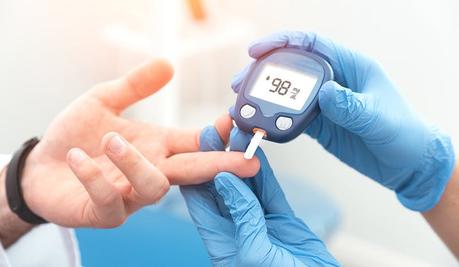
Never has our metabolic health seemed more important than now, during the global response to the novel coronavirus SARS-CoV-2 and resulting COVID-19 pandemic.
While we are all at risk of being infected by the virus, individuals with diabetes and hyperglycemia and other markers of metabolic syndrome, such as hypertension and obesity, are at markedly increased risk of dying from the infection.
As Dr. David Ludwig of Harvard pointed out in his recent editorial in The New York Times, it's impossible to think we can isolate "only those at risk" when two out of every three Americans are overweight, almost 50% have hypertension or cardiovascular disease, and 10% have type 2 diabetes.
With Europe and the UK showing similarly concerning trends, this is not an isolated problem.
In addition, a previous study estimated only 12% of the American population meet criteria for being "metabolically healthy."
These staggering numbers highlight just how sick we have become and how now, more than ever, we need to refocus our attention toward reversing the trend of metabolic diseases.
To help better understand where to start, this article covers the three most common myths about type 2 diabetes. Busting these myths will help you reverse this condition and dramatically improve your health.
1. Type 2 diabetes is an incurable chronic condition
In medical school, I was taught that type 2 diabetes is not something to be cured, but rather something to be managed. Unfortunately, that stereotype persists today, with the The New York Times recently publishing a short-sighted editorial about how we have little to offer individuals with type 2 diabetes.
In fact, the exact opposite is true. Numerous studies show that a carbohydrate-restricted diet helps people reverse their diabetes, normalize their blood sugar, and eliminate diabetes medications.
These studies include randomized controlled trials as well as the recent nonrandomized trials conducted by Virta Health.
While these trials don't have the same funding that pharma-sponsored trials do, if a drug had similar results, it would surely be a billion-dollar product. But it isn't a drug that works. It's changing what you eat.
2. Individuals need multiple medications to normalize blood sugar
It's no secret that our medical institutions and research pipelines heavily promote medications. Sometimes very expensive medications. Type 2 diabetes drugs are a prime example of that.
New medications such as SGLT2 inhibitors, GLP-1 agonists, and GPP4 inhibitors add to the cost of the older and consistently expensive insulin. It is not uncommon for patients to take between two and six different medications for their type 2 diabetes.
It doesn't have to be this way.
Type 2 diabetes starts because we put more sugar into our bodies than they can handle. One of the most popular new medications, the SGLT2 inhibitors, address this by forcing your kidneys to excrete more glucose.
But what if we simply reduced the amount of sugar we put in? That could negate the need for medications to get rid of it.
It may not be as simple as reducing your carbohydrates and getting off all your medications, but examples of exactly that exist among many individuals and physicians.
Especially when combined with intermittent fasting, low-cab eating can eliminate the need for expensive medications.
If you are taking medicine other than metformin to control your type 2 diabetes, please work with you doctor to safely transition from your current medications to a lifestyle-based approach to reversing diabetes. You can learn more about reversing diabetes in our guide, How to reverse your type 2 diabetes.
3. It's all about normalizing blood sugar
We generally refer to type 2 diabetes to as a problem of blood sugar. But that is only half of the equation. In reality, type 2 diabetes is a disease of too much blood sugar and too much insulin.
Controlling blood sugar by increasing insulin does not address the true problem of type 2 diabetes. Only by controlling the blood sugar while reducing the insulin (and improving insulin sensitivity) can we hope to fully address and reverse the problem.
It is no surprise, therefore, that aggressive use of medications that increase insulin (such as sulfonylureas and insulin itself) do not show improvements in heart attacks or risk of dying. Newer medications that lower insulin, like SGLT2 inhibitors, do reduce cardiovascular risk and risk of dying.
Of course, carbohydrate restriction is the other proven way to simultaneously lower blood sugar and insulin.
Keeping these three all-too-common myths in mind, we can reframe how we see type 2 diabetes and the metabolic challenges we all face. Especially in a time like now, when the acute cost of our metabolic disease seems higher than ever, it is empowering to know we can take control of our health.
At Diet Doctor, we want to help spread that message and help the medical community as a whole spread it as well.
If you are a healthcare provider or want to help educate healthcare providers about carbohydrate restriction, please take our free continuing medical education course. Anyone can take it and it is certified for continuing education credits for doctors, registered nurses, physician assistants and registered dieticians.
Together, we can empower people everywhere by making low-carb simple.
Thanks for reading,
Bret Scher MD FACC
Start your FREE 30-day trial!
Get delicious recipes, amazing meal plans, video courses, health guides, and weight loss advice from doctors, dietitians, and other experts.
Join now

